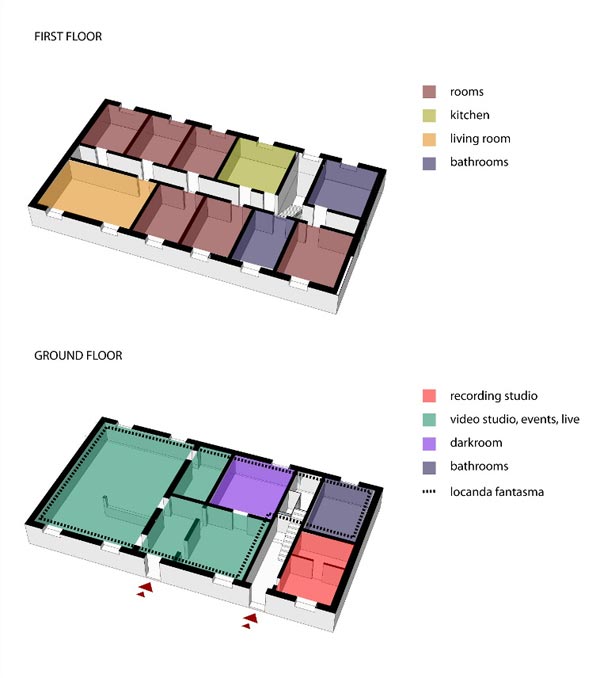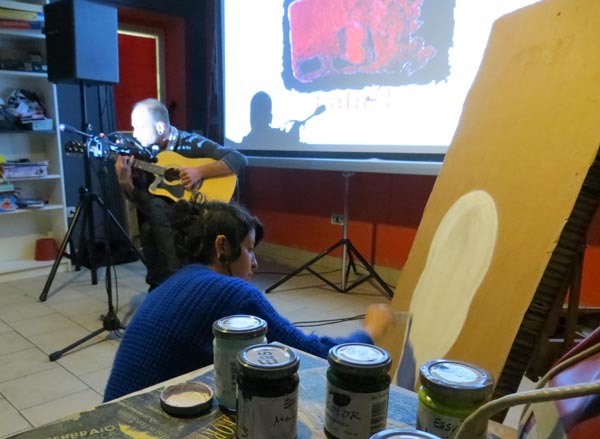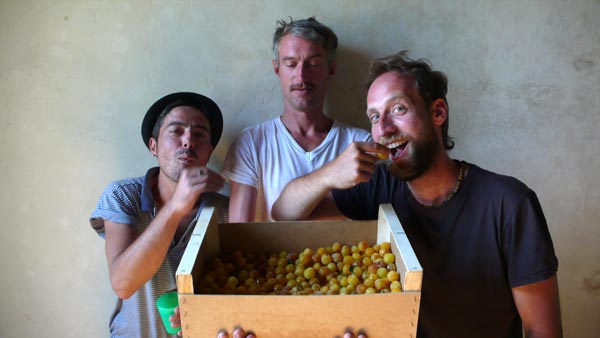LMP Asks: Eat the apple – an interview with Red Plastic Label

In an old farm near Milan, Italy, live and work the people at Red Plastic Label, a web-based label that produces and promotes her artists using open source software and creative commons licenses. LMP had the opportunity to ask them what they do, how they do it and why.

Who are Red Plastic Label?
We're a team of experts in various fields of cultural production (Records, Books, Visual Arts, Movies) We strongly believe in the liberation of knowledge from marketing mechanisms.
We promote innovative ways for the diffusion of knowledge and arts, built on the opportunity of interaction between every form of human expression (this is the Feyerabend's theoretical anarchism, baby!).
We are all involved in a very large part of the production: We build things, we create experiments, we explore different arts, we use philosophical theories to better communicate between different worlds, mixing diverse forms of expression together.
Something about music? We have built our project listening to “Alles Wieder Offen” by Einsturzende Neubauten!

Red Plastic Label has the whole building except the blue part (which is used for video-events).
What does Red Plastic Label do?
We're a cultural organization interested in producing and promoting arts, music and knowledge for free. We're a young organization (less than one year of activity) but we're working hard! We've divided our productions into six categories: administration, artist, technician, employee and supporter/watcher, in a way that helps facilitate our activities.

From the first event of Red Plastic Label: Andrea Cocci and Miss G.
Why do you feel FLOSS/open source is important, and what for you is the most important aspect of Linux audio?
According to our philosophy, you must have the possibility to learn how your machine works! No one should hide what is behind a GUI. Linux and open software doesn't hide, or at least not to the same degree.
In order to produce audio in Linux you have to know: What is a sound and how it works, what is a computer and how it works. And that is how we define our work! With others, you have to play the “game of production”.
What does FLOSS mean to you?
FLOSS means freedom and personal improvement. It also means difficulties, but difficulties for us mean problem-solving, and nothing more.
Publishing and distributing music the FLOSS way - can you describe it?
We distribute the work of our artists online for free, using Linux-based computers with personal USB-keys. We distribute it in the same way during our events. In the future, we will produce hand-crafted and limited edition CDs.
What do you feel is missing in the FLOSS world?
It would be great to have open drivers developed by manufacturers, in order to improve the work that the ALSA & FFADO projects are already doing.
The PreSonus FaderPort is out since 2007, I think. In 2014 it is still unusable! We've paid for this machine and we want to use it in Linux.
Edit: Ardour now has deep support for the PreSonus FaderPort as of version 4.6.
What projects are you involved in right now?
For 2015: Production, Production, Production. Then maybe a European Tour, to meet new friends and open new production cells.

Little Pony, the first LP production of Red Plastic Label. Watch Little Pony - "Devo Scappare" on YouTube.
What is your hardware set up?
We use an i5 notebook with 4GB RAM (KXStudio/LMDE). Our hardware includes:
- Roland Studio Capture and Quad Capture
- Lexicon reverb unit
- PreSonus Studio Channel
- AKG and Shure microphones
- M-Audio keyboard
We also have a FaderPort, but...
Tell us a bit about your typical workflow
We investigate all kinds of arts. When we discover an interesting artist, we look for relations between them and other artists and how to relate them to other fields. We then use these relations to improve the production (for example a collaboration between a musician and a graphic designer) or to create a Total Art event, an experimental show created to test the connections between artists and people.
What changes, if any, would you like to see within the Linux Audio community?
Be proud!
What advise would you give to a new Linux Audio user?
If you see an apple, just eat it, and then start to have free fun with a free platform.
